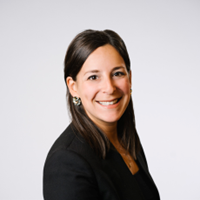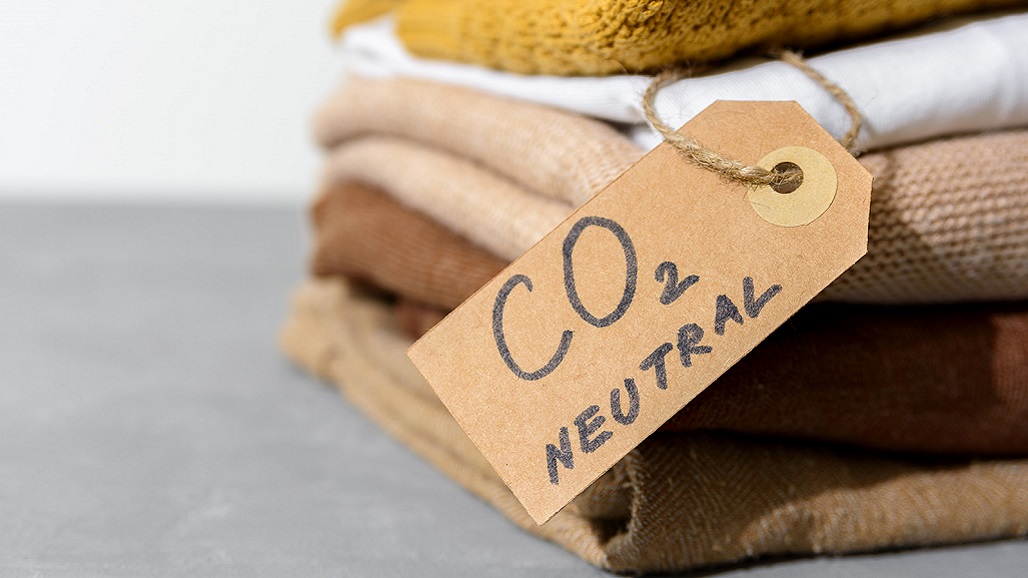Becoming one of the first sustainable retail or consumer goods companies is the smartest move companies can make to differentiate themselves.
Photo: Tatyana Aksenova/Getty Images
 Given vast product lines and far-flung supply chains, retail and consumer goods companies face a harder task than many when it comes to complying with the proposed emissions disclosure rule from the U.S. Securities and Exchange Commission.
Given vast product lines and far-flung supply chains, retail and consumer goods companies face a harder task than many when it comes to complying with the proposed emissions disclosure rule from the U.S. Securities and Exchange Commission.
Under the anticipated rule, companies would be required to measure and disclose each product’s greenhouse gas (GHG) emissions from raw materials right through point of sale and beyond. That means compliance won’t be easy for larger retailers and consumer goods companies with tens of thousands of products in inventory to account for.
Adding to the complication, many large retailers and consumer goods manufacturers have voluntarily committed to reduce GHG emissions, with several pledging to achieve net zero emissions by a specific date. Those enterprises would have to disclose their success with emissions reductions each year in annual reports.
Overhauling Supply Chains
But for those companies that move decisively, there may be benefits through the reimagining of supply chains to reduce risk and cost as well as develop a better ability to differentiate their customer value propositions. Becoming a first mover is the smartest thing retail and consumer goods companies can do. Given the significant investor support behind disclosure, some iteration of the rule is almost certain to get adopted, and with the limited availability of sustainable supply, it will be best to be quick off the mark to secure it.
Measuring emissions could also prove useful to companies that want to make their supply chains more sustainable. Using the data, consumer sector companies may be able to restructure supply chains to reduce emissions risk. This might mean picking new suppliers or changing the mix of transportation modes. For instance, companies may decide to go with nearby suppliers to reduce emissions from transport or stock more sustainable products.
We believe retailers and consumer goods companies that move quickly have unique customer engagement opportunities.
Also, as many manufacturers acknowledged in the wake of supply chain disruptions from COVID-19 and the Ukrainian invasion, having at least a portion of key suppliers closer to home can avoid lengthy delays because of sudden closures of certain regions. For instance, automakers and other manufacturers had to shut down production at points during the worst of the pandemic because of the cutoff of semiconductor and wire harness shipments amid China’s COVID lockdowns. In response, the United States recently passed legislation to build up its domestic semiconductor production.
Considering factors like these could enhance reputation and brand from a corporate social responsibility (CSR) standpoint and companies should consider how they communicate their efforts to customers, employees, and investors. We believe retailers and consumer goods companies that move quickly have unique customer engagement opportunities. For instance, could a new scale rating for ‘emission-friendly’ products based on Scope 3 emissions be developed? This is generally yet-to-be-claimed territory for the consumer sector, meaning the first retailers or consumer goods manufacturers to act will have an outsize influence on the customer expectation, outsize authority to define the standards, and reap outsize value on brand equity.
How to Measure
So where to start on measuring emissions? Retailers and consumer goods manufacturers can hit the ground running by integrating global frameworks from the Task Force on Climate-Related Financial Disclosures (TCFD) and Greenhouse Gas Protocol into their climate-related oversight, management, and reporting. In particular, the GHG Protocol introduces a framework to measure GHG emissions from both operations and the value chain.
Based on an analysis by Oliver Wyman and the Joint Global Change Research Institute, 90% of emissions for the consumer sector are so-called Scope 3 emissions. These are among the hardest to track and control because they are usually being created by enterprises upstream and downstream from the company filing with the SEC.
Emissions are categorized based on the stage in a product’s life they are generated. For instance, for a manufacturer, Scope 1 are emissions from the production of a product. In the case of retailers, they’re from the operations of stores. Scope 2 are those from power consumed by a company’s operations.
Scope 3 emissions come from a company’s manufacturing supply chain, transportation of products, or use and disposal of products. For example, to gather Scope 3 emissions, food companies or grocery chains may need to tally emissions from vast networks of small farmers across the developing world. Putting processes in place to handle this is not something that can happen overnight. Yet, companies are expected to begin Scope 3 disclosures in 2024 filings.
Economic Distractions
At present, retail and consumer goods companies are rightly distracted by the economy: They’re looking primarily to fend off inflation and eliminate the disruptions caused by COVID-19 and the invasion of Ukraine. But companies that factor in the long-term impact of sustainability are likely to create a more durable team of suppliers over the long-haul — less vulnerable to emissions and nature-related risks. These are likely to be more diversified in terms of geography and delivery schedules and modes.
While combating inflation is top of mind, sustainability will be a more transformational trend and performance enhancer than higher prices. Despite the enormous complexities, Scope 3 disclosures present a unique opportunity for retailers and consumer goods manufacturers to differentiate their customer value proposition as a highly sustainable organization.
Related themes: CLIMATE ADAPTATION DECARBONIZATION REGULATION
 Randall Sargent
Randall Sargent
Principal at Oliver Wyman
Randall Sargent is a principal with Oliver Wyman’s retail and consumer goods practice, specializing in retail merchandising, value strategy, and assortment. Randall is based in Boston but spent a year in the Singapore office earlier in her career.
 Marc Rousset
Marc Rousset
Partner at Oliver Wyman
Marc Rousset is a partner with Oliver Wyman’s retail and consumer goods practice, working with companies undergoing organizational turnarounds, digital transformations, and AI implementations. His career has taken him to at least three continents. He’s currently based in Boston.
The original report can be read at the Brink’s website HERE.


Leave a Reply